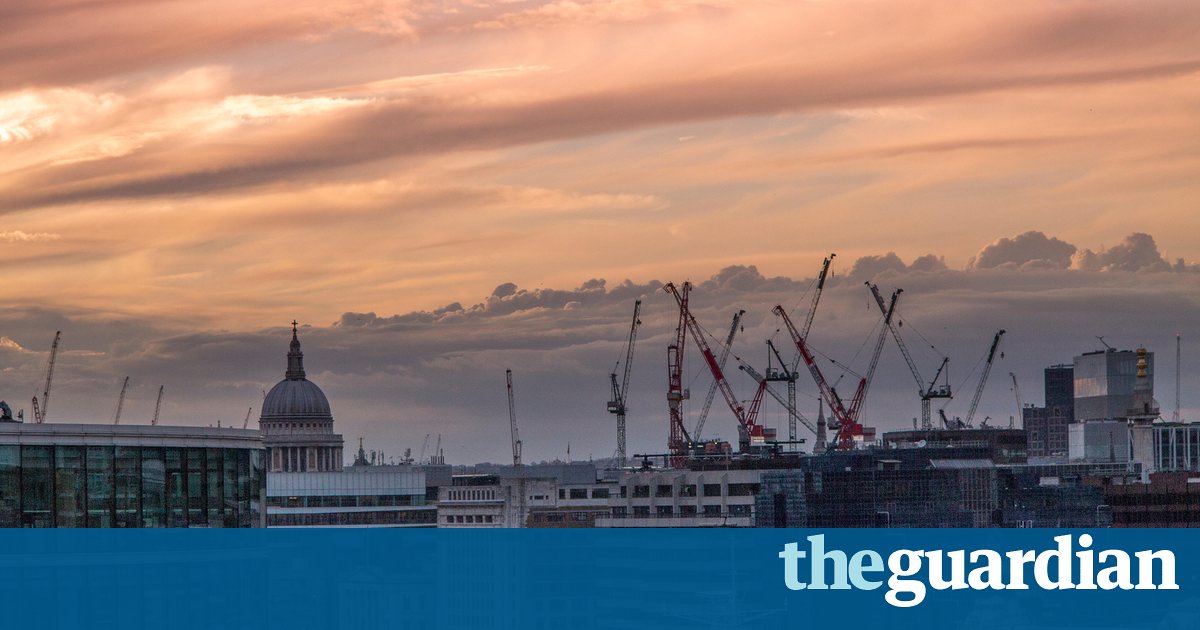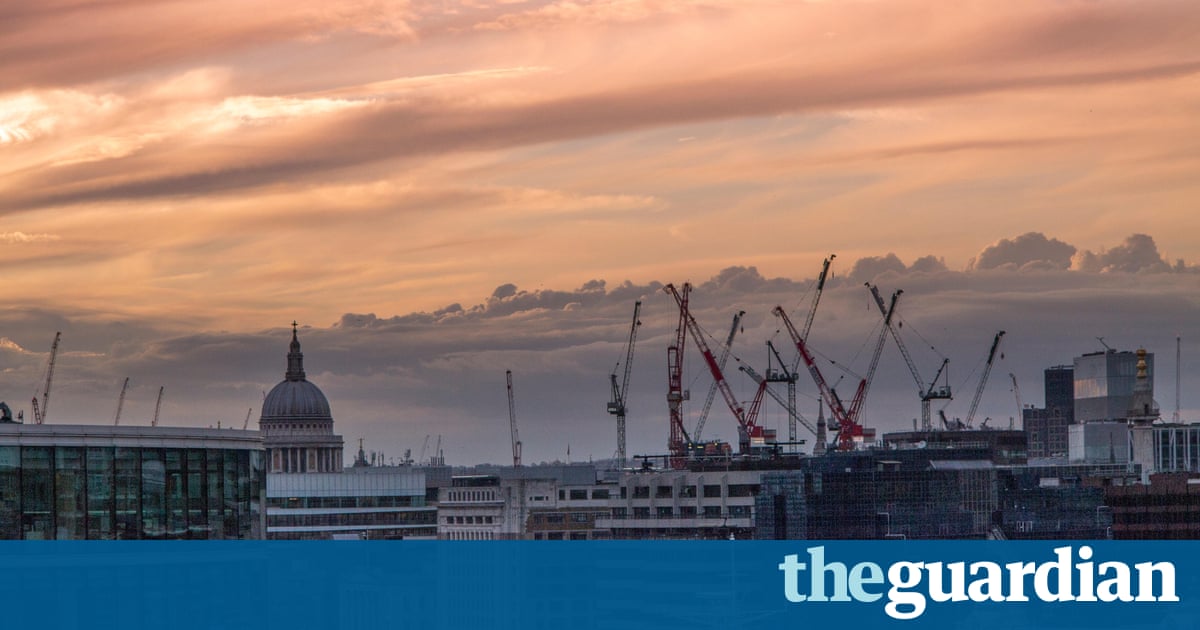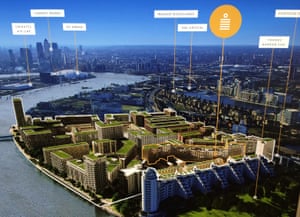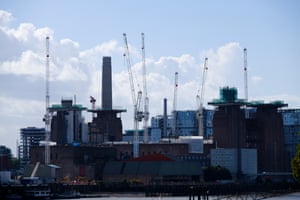‘This is just the start’: China’s passion for foreign property

A huge new wave of Chinese investment in overseas housing may be about to flow into the global market. In Hong Kong, Tom Phillips meets the salesmen who market British property to mainland China

 About this content
About this content China is so big, marvels Victor Li, using his fingers to count all the cities he has flown to over the last 12 months to meet with cash-rich Chinese buyers interested in buying into a real-life game of London Monopoly.
Li, a director of international project marketing for the US real estate giant CBRE, is predicting a surge of eastern investment in British homes over the next decade, as increasingly affluent Chinese investors acquire a taste for international property.
I think it is just beginning, says Li, of the amount of money pouring into property around the world from mainland China. You do the figures: China has a population of 1.4 billion. If you target only 1% of Chinas population, thats 14 million people so its already almost two Londons.
Sitting in his office overlooking Hong Kongs skyscraper-dotted Victoria Harbour, Li estimates that just 3% of potential Chinese investors in overseas property have so far been found meaning a virtually untapped goldmine lies over the border in mainland China. China is a big market, you know? he says. They are getting wealthier and wealthier.

Rich Hong Kong investors have been ploughing money into British bricks and mortar for decades, snapping up off-plan apartments at weekly property fairs that can then be rented, flipped, held as investments or used as second homes.
I have one [London property] in Canary Wharf, one in City Island, one in Wembley Park, one in Elephant and Castle, said one investor matter-of-factly at a recent expo in Hong Kongs chic Mandarin Oriental Hotel, as he eyed a new development near the Thames Barrier in E16.
But many real-estate agents and property experts in east Asia believe a new wave of investment is just getting under way, as mainland investors develop a taste for international real estate, including postcodes up and down the UK.
Our thesis and this is supported by quite a lot of evidence is that in many ways the international Chinese investment journey is probably just starting, says Charles Pittar, chief executive of Juwai.com, a website that aims to pair mainland buyers with property developers in places such as Australia, the US and the UK.
Pittars company, which lists 2.5 million properties and calls itself Chinas largest international real-estate website, estimates that in 2014, Chinese outbound investment into residential and commercial property was more than $50bn (38bn).
I guess the key is: what is it going to become? Pittar says. Our view is that it could be growing to somewhere around $200bn [annually] over the next 10 years.
And Britain, despite its decision to leave the EU, is expected to be one of the key focuses, he adds. The UK market, particularly post-Brexit, is really picking up.
Pittar traces mainland Chinas hunger for overseas property back to the turn of the century, just before Chinas entry into the World Trade Organisation signalled the latest phase of its integration into the global economy. But the outflow of money has gathered pace over the past decade, and is set to grow further as middle-class investors from second- and third-tier cities get in on the game.
Its a big market now, but it is likely to be anywhere from two to four times the size in 10 years time, Pittar says. The exciting thing about China is that there are 168 cities with more than a million people. So this is just such a huge market.

Li, who specialises in London properties worth up to 4m, concurs with the notion that Brexit is helping to accelerate the boom in interest in the UK: Some of my clients at the beginning of the year, they said: OK Victor, lets wait, wait, wait. And then, after they found out about Brexit and [the] sterling came down more than 10%, I got more calls they want to go back into the market. Its lots of saving, he says with a grin.
According to Pittar, Chinese who buy property overseas have four main motivations: investment, lifestyle, emigration and education. Many are looking for a foothold in the UK, where they hope their children will go on to study.
Some people are buying for their family to use it, says Li, some are buying to diversify, some are buying because they want to own a property for investment and some people are buying for prestige, to say: I own a piece of property in London.
Crucially, he says, London is also seen as a secure place to store money that investors want to move out of China, to guard against the devaluation of the Chinese currency, the yuan. People in mainland China, they want to get their money out … They believe that money out of China is safe money. And London is a safe-haven to park that money.
The 50-year-old property salesman made his first foray into mainland China in 2001, pitching a slice of Lambeths St George Wharf to would-be investors at a five-star hotel on Shanghais answer to Oxford Street.
Over the past year alone, Li has made almost 20 such trips, jetting out from his base in Hong Kong to cities including Guangzhou, Chongqing and Chengdu to meet with cash-flush Chinese buyers.
This one is Macau This one is Shanghai, he says, flicking through photographs on his smartphone of recent seminars where he advertised luxury London developments such as Clipper Wharf in E1 and Carrara Tower on City Road.
Li says some mainland investors agree to buy apartments on the spot. If they are interested, they reserve the unit they just use a credit card. They have Union Pay, Mastercard or Visa: 5,000.
Many of his mainland investors are real-estate tycoons who have made a fortune from their countrys economic boom, and now just want to take the profits, cash out and move some of their wealth overseas.
But Pittar believes the story of ordinary, middle-class investors is more significant than that of Chinas globe-trotting, Ferrari-driving elite. What we read in the newspapers is always about the very wealthy Chinese who come and buy a 5m, 10m, 15m property. But the middle class is key. How big is the middle class? It could be 120 million. We tend to think its probably closer to 150 million.
Once theyve got somewhere to live in China, the reality is that the domestic market is quite expensive, so thats why they are looking more for international opportunities. Like anyone who wants to preserve their wealth, diversification is important.

Predictions that a new wave of investment from mainland China is on the horizon will stir further debate over the measures British politicians might use to protect local home buyers.
The anticipated influx of money from mainland China into the UK is set to affect not only London historically the focus for much east Asian investment but cities such as Manchester, Liverpool and Birmingham, to which more of the investment is now heading.
Those seem to be the hotspots, says Neil Jensen, the Hong Kong-based regional director for London estate agent Fraser & Co, who promotes developments in the capital to Asian investors.
A particular spotlight has been shining on Manchester since last October, when Chinese president Xi Jinping toured the city to lend his support to George Osbornes northern powerhouse project during his first state visit to Britain.
Jensen says Fraser & Co, founded in 1995, has traditionally specialised in London properties which it markets internationally through offices in Dubai and Hong Kong. Now, however, he is preparing to offer his clients their first major investment opportunity outside the capital, in a project specifically designed to attract Chinese money.
Called New Chinatown or Xinhua Bu (New China Wharf) in Mandarin the 200m venture in Liverpool describes itself as one of the most important and exciting developments in the UK today and promises to be one of the UKs most luxurious and desirable residential destinations.
The developments website boasts: It is the burgeoning energy and dynamism of modern China transplanted into the heart of an historic World Heritage City. Adding: This is an historic moment This is a unique investment opportunity.
Underpinning the whole masterplan is the idea and motif of the awakening dragon a powerful symbol of Chinas resurgence and status as a new global power.
Jensen says improving transport infrastructure in the northwest and relatively low prices meant New Chinatown where two-bedroom duplex penthouses are on offer for up to 546,427 and ordinary one-bedroom flats from 119,211 would be a hit with Chinese investors.
You cant just put up a block of flats in Liverpool and expect people to buy it If you want foreign buyers there has to be a story, he says, adding: Theyll probably go quite quickly.
The fringes of London have also come onto the radar of Chinese investors, thanks to Crossrail, a 14.8bn, 73-mile metrolink cutting west to east across the capital, which is set to open in 2018.
Most of your investors 20 or 30 years ago would have been going more towards the bullseye in dartboard terms, Jensen says, referring to the centre of London. But improved transport links are now drawing foreign investors to places such as Slough, Ilford and Canning Town.
The commuter area anything within a 20-30 minute travel time [of central London] is hot, says Jonathan Gordon, a director at IP Global, a Hong Kong property investment firm that is promoting projects in Ilford and Croydon and has previously invested in Slough.

Slough has got Crossrail going through it so you can get to Bond Street in no time, he says. It is those sorts of stories we are interested in as opposed to buying in Bond Street itself.
Crossrail is not the only reason foreign investors are now looking to the outskirts of the capital, though. Investors and industry insiders say stamp duty increases targeting wealthy foreign investors have pushed up the cost of buying more expensive properties in prime locations.
That has led many foreign investors to buy a larger number of cheaper properties in more peripheral, suburban areas, says Gordon, where transaction costs are lower.
One veteran Hong Kong investor, with a portfolio that includes properties in London, Manchester and Liverpool, explains: You buy a large number of properties, but lower-priced ones You pay something like 200,000 or 250,000, rather than 1m for zone one in Mayfair, places like that.
This new wave of Chinese investors includes people such as Jody Ye, a 30-year-old from Chongqing, a metropolis in south-west China. In July, Ye paid 200,000 for a flat in Bristol, where she went to university and now lives. She is planning to buy her second UK property.
Buying property back home is too expensive, she says. Investing in the UK is much more cost-efficient. Bristol is not only a great place, but, she adds: British people think Bristol is posh.

Fan Feifei, 34, from Xian, is another Chinese buy-to-let investor. She is preparing to purchase her third property in Birmingham. I bought it purely for investment, she says of her second purchase, a 135,000 home in B29, which she rents to overseas students.
Since 2014, Chinese people have been rushing to buy houses in the UK, adds Fan, pointing to high rental yields and stable property prices as key driving factors. All of the Chinese people around me are buying houses or have already bought several houses in the UK. Im the one who has bought the least, with only two.
Song Dongzhe, a third mainland investor, from the north-eastern city of Dalian, bought his first British property a three-bedroomed house in Selly Oak, south-west Birmingham in 2012 for 125,000. Earlier this year he bought two more.
Song says the UK is very attractive to Chinese property investors, largely because it does not have the high duties that have been introduced in Canada and Australia targeting foreign buyers.
High prices in London make it too risky to buy there, he adds. But as the UKs second biggest city, I thought Birmingham was a choice that made sense.
A fourth mainland investor, who declines to be named, says President Xis tour of the UK convinced him Britain was the right place to invest his familys fortune. Property in major Chinese cities such as Beijing, Shanghai and Shenzhen is now too expensive, the Shanghai investor says, and Chinas stock market is extremely unstable so I think its a good time to invest in [the] UK.
As well as London, he says he is now looking at opportunities in cities such as Birmingham, Manchester and Edinburgh.
Underlying discontent
Speaking in his Hong Kong office, property promoter Gordon predicts that, as has happened elsewhere in the world, concern over foreign investment in British property will eventually lead to the introduction of measures to protect local buyers. There is that underlying discontent in some camps to say: Well, its not on, its not fair releasing and selling all this property overseas.
I wouldnt be surprised if, going forward, there is some legislation that says a certain percentage of properties have to be sold or marketed locally for a period of time, and then it is fair game overseas [after that].
Australia, currently the second biggest destination for Chinese property investment after the United States, has been cracking down on foreign buyers since last year, after complaints that Chinas voracious appetite for property in cities such as Sydney and Melbourne was pricing local buyers out of the market.
Hong Kong, a semi-autonomous city that returned to Chinese control in 1997, has also been fighting to quell a huge wave of often speculative mainland investment in residential property. In a bid to rein in sky-high prices, authorities in the former colony have rolled out a series of cooling measures in recent years, including tighter lending rules and higher stamp duties.

Victoria Allan, an Australian real estate entrepreneur who specialises in leasing and selling property on Hong Kong island, says: The price point has moved so high in Hong Kong that its hard to buy a house any more for under US$10m that, five or six years ago, you could buy for $5m.
Allan, founder of Habitat Property, says efforts to stem the flow of mainland money into Hong Kong have diverted a significant amount of Chinese investment elsewhere. Its moved into Australia and the UK; its moved into the US. And it has really pushed those markets up as well.
Allan believes that the Hong Kong government pushed back too hard against the influx of mainland money, and advises British policymakers to avoid taking too drastic steps.
I would definitely say: dont shut it out totally. That was our mistake. I think Hong Kong has approached it too harshly. Why shut the door totally?
By locking mainland Chinese real estate investors out, Allan argues, the whole economy suffers, not just the property market. There has to be some kind of balance. We are supposed to be an international city.
Maybe some tax is applicable, she says, but I think there is a way to manage it in a really positive way for everyone. Particularly if that is done in conjunction with town planning and helping direct the investment into towns and city centres that need assistance with good housing. There are great ways to take the investment.
Jensen also warns against demonising foreign investors, who he says play an essential role in helping developers build new homes. You cant be a world city and not have foreign investment.
Theres a lot of schemes going up, but how on earth are they going to fund them? he asks. The banks dont have the money So youve got to rely on overseas investment, be it funding by way of people buying them, or by someone saying, OK, well buy the site and the development and well sell it back to the Brits.
Li says he recognises the controversy surrounding foreign investment, but shrugs it off as a natural phenomenon: I think even in Hong Kong we face the same problem. You just cant avoid it; its supply and demand. Everybody wants to live in the best location, right?
But not everyone is convinced Chinese investment in overseas property will continue to soar. Gordon says the scale of future investment will depend on the health of the Chinese economy, and the enthusiasm with which Beijing enforces capital controls limiting how much money individuals can remove from the country. Others believe the uncertainty caused by Brexit will put the breaks on further moves into the UK.
Concerns over the risk involved in some UK developments may also curb enthusiasm for off-plan investment. For months, rumours have been swirling in Hong Kong about major developments that appear to have collapsed after the developer went bust, leaving investors struggling to recoup their money.
During a demonstration outside the British consulate in July, protesters held up placards reading: Home is where the fraud is and A scam of two cities.
Property industry insiders argue foreign investment from places such as China is helping to transform urban centres around the globe, and is the only way to finance affordable new homes in cities such as London.
I think a lot of it will be positive on the basis that this is fuelling regeneration, Gordon says of the coming wave of Chinese investment in UK property. Its creating jobs, its improving infrastructure, and it is making, generally speaking, the quality of life better.
But London mayor Sadiq Khan has warned against the capitals homes being used as gold bricks for investment, and has spoken out over how some new developments are touted to foreign investors before local buyers.
There is no point in building homes if they are bought by investors in the Middle East and Asia, the mayor said in May. I dont want homes being left empty. I dont want us to be the worlds capital for money laundering. I want to give first dibs to Londoners.
Additional reporting by Christy Yao in Beijing
Are you experiencing or resisting gentrification in your city? Share your stories in the comments below, through our dedicated callout, or on Twitter using #GlobalGentrification
Read more: https://www.theguardian.com/cities/2016/sep/29/inside-china-passion-foreign-property-investment-uk